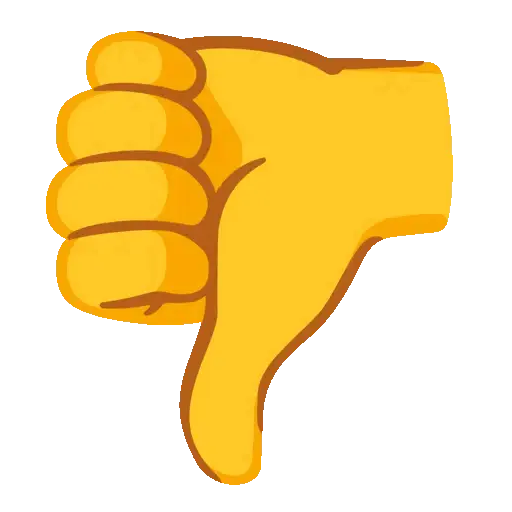Looking for answers to our most common questions? Browse this page to find what you need.
Water issues, connections and charges
- I have issues with my water quality.
-
If something’s wrong with your water, contact your local water company.
It’s normal for your water’s colour, taste and smell to change throughout the year. This can be due to its temperature, where it comes from or the demand for water in your area. For more information, read how we test water quality.
- How do I connect or disconnect my water supply, and who do I pay?
-
Contact your local water company with questions about water connections or paying your water bill.
- What does the Waterways and Drainage Charge pay for?
-
The waterways and drainage charge pays for drainage, flood protection and flood warning systems, as well as programs to protect and improve river health. The exact amount of the charge depends on your property type and location, but is usually $50 to $100 a year.
- How do I get recycled water?
-
Generally, recycled water is only available near our sewage treatment plants in Werribee and Bangholme. To find out if your area has recycled water, contact your local water company.
- What water restrictions are in place, and who do I report water wasters to?
-
Permanent water saving rules were put in place across Victoria from 1 December 2012. Additionally, the Target 155 voluntary water efficiency program was reintroduced in 2016 to remind Melburnians to use water responsibly. If you see someone wasting water, contact your local water company.
- Why haven’t the water storage levels gone up after a big storm?
-
Any increase in storage levels greatly depends on the moisture of the soil in our forested water supply catchments. The soil acts like a sponge: the drier it is the more rain it absorbs, so less water flows into our reservoirs.
In summer and autumn the soil is dry, and rare summer rains only moisten it briefly before it dries again in the heat. However, winter and spring have days and weeks of continuous rain. This keeps the soil wet enough for water to run off, and is when the largest water storage increases happen.
Watch the following video for more information:
Property maintenance, flooding and fencing
- Where are the pipes for water or sewerage located on my property?
-
To locate pipes on your property, contact your local retail water company. If you are building or renovating, check the location of pipes and other assets on your property by using the free Dial Before You Dig service (call 1100).
- When will you cut the grass near a creek, drain, pipe track or retarding basin?
-
We maintain our land all year round, but our schedule can change due to weather and factors like safety. To find out when and how often we’ve planned maintenance for a property, contact us online – remember to include the address of the area or the property next to it. You can also report maintenance issues like fallen trees.
For more information on our grass cutting program, watch the following video:
- Will you share fencing costs with me?
-
We will pay half the cost of fencing if a property borders our land, or shares a common boundary with land that we own outright – not Crown land vested in Melbourne Water. Apply online for a shared-cost boundary fence, or contact us for more information.
- Am I in a flood affected area or overlay?
-
There are different ways to find out if your property is affected by flooding, depending on what you need the information for. These include ordering a flood level certificate or property information statement, or applying to Melbourne Water for pre-development advice. For details on the options available, see property flood level information.
- How is flood protection prioritised in my region?
-
Our priorities and expenditure are guided by our Flood Management and Drainage Strategy and Flood Risk Assessment Framework, which defines how we evaluate a flood’s likelihood and social, safety and economic consequences. We prioritise extreme flood risks that should be reduced or eliminated almost regardless of the cost.
- How can I prepare for floods?
-
The Victoria State Emergency Service (SES) is the control agency for flooding and storms. Their FloodSafe and StormSafe webpages have information on preparing for and dealing with floods – including protecting your home and family. We've also compiled a list of resources to help you be prepared for flooding.
Building and work approvals
- What is a build over and what does Melbourne Water need to approve?
-
A ‘build over’ is when you plan to build near, on or above an asset we control, such as a pipe or easement. Examples of build overs include sheds, verandas and landscaping, which all must have our approval in the form of a legally binding Build Over Agreement. For details, read our building requirements or apply online for build over approval.
- What planting approvals do I need?
-
Melbourne Water must approve plantings over or near pipe reserves, easements and floodways, as some roots can cause pipe damage that you will be held responsible for. Use our planting guidelines to choose appropriate plants, and apply online for planting approval.
- How do I apply for approval and what are the fees?
-
You can apply online for work approvals. The fees differ according to the type of work – view our current fees for construction, works and stormwater connections.
- How long does it take to process my application, and how can I check progress?
-
We process applications within 28 days of receiving them. To find out how your application is progressing, contact the Asset Services team by emailing [email protected] or calling 131 722.
- How do I get plans of stormwater drains, water mains or sewers?
-
First, make a free enquiry with Dial Before You Dig. They will send an enquiry confirmation sheet that confirms your site details are correct. We will then send you plans of the location of our underground infrastructure. For more information, visit our guide on checking if assets are near you.
- Where can I get guidelines and standard drawings?
-
Our website provides a number of downloadable guidelines and standard drawings that can help with your proposed development.
-
Do you offer any grants or funding?
-
Yes, Liveable Communities, Liveable Waterways is Melbourne Water’s streamlined and flexible incentives program. It is open to all our customers including landowners, councils and public land managers, schools, community groups, universities and research institutions, not for profit and collaborative multi-stakeholder groups. We also welcome new partnership opportunities.
To be eligible for consideration, your project or proposal must be located within Melbourne Water’s operating area.
You can apply at any time during the year. To learn more, visit Liveable Communities, Liveable Waterways Program.
Tours and birdwatching
- How do I get a birdwatching permit?
-
You need our approval to birdwatch at the Western Treatment Plant. Find out how to apply for birdwatching access, then complete our online application (including a short safety training course) and pay a small fee.
Interstate and international visitors can also get short-term permits from the Werribee Zoo’s Visitor Information Centre.
- How do I book a tour of a sewage treatment plant, education centre or reservoir?
-
Schools and community groups can book a tour online to our sewage treatment plants and wetland education centre. School excursions to our Winneke Water Treatment Plant near Sugarloaf Reservoir can be arranged by contacting Eco-Adventure Tours.
Our Edithvale-Seaford Wetland Education Centre is also open to the public every Sunday from 1 pm to 5 pm.
Job seekers, careers and work experience
- What job opportunities do you have? Do you accept graduates, interns or work experience students?
-
We list all our current job vacancies online, including positions for recent university graduates. We also have a two-year engineering graduate program, but unfortunately can’t offer work placements for vacation students, interns or Year 10 work experience students. For more information:
- read about our jobs and careers
- sign up for job alerts to be notified of new opportunities.
- Can you keep my resume on file in case positions become available?
-
Although we don’t have the capacity to store your resume, we encourage you to subscribe to job alerts if you’re interested in working at Melbourne Water. This will automatically notify you when we advertise new positions.
- Where will I work if I get a job at Melbourne Water?
-
Our job advertisements state where the position is based, but our main sites are at:
- Brooklyn – Brooklyn Pumping Station
- Carrum – Eastern Treatment Plant
- Christmas Hills – Winneke Water Treatment Plant
- Docklands – corporate office
- Healesville – Healesville water maintenance operations
- Tarago – Tarago Water Treatment Plant
- Werribee – Western Treatment Plant.
- What do you look for in prospective employees?
-
During our recruitment process we look for skills specific to the position you’re applying for, as well as attributes like:
- team orientation
- customer focus
- commercial acumen
- problem-solving skills
- innovation
- flexibility and adaptability
- critical and independent thinking.



